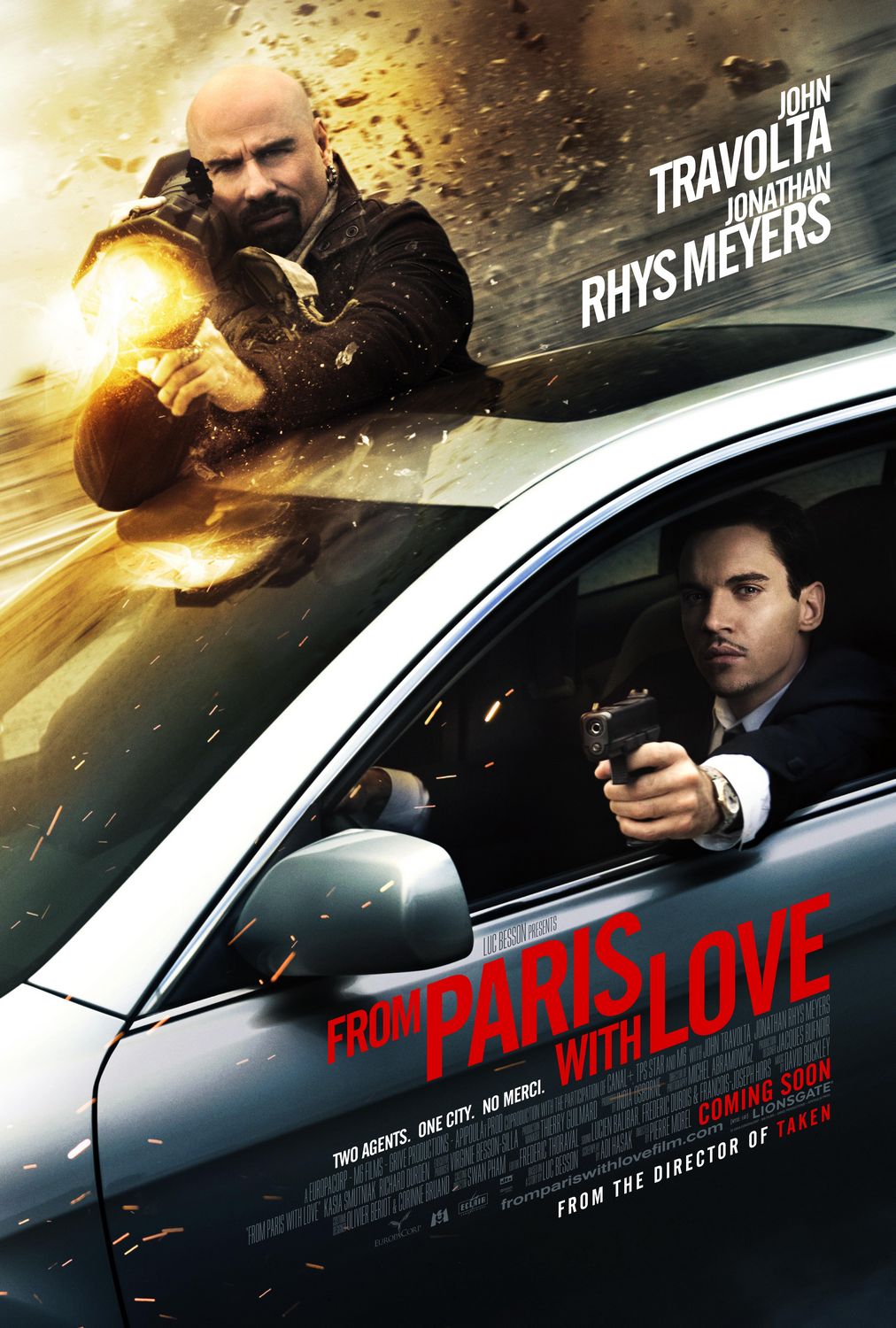There’s fine line between giving the benefit of the doubt and wondering what the heck someone was thinking.
In From Paris With Love, the benefit of the doubt goes to John Travolta as CIA operative Charlie Wax. He’s so over-the-top that you can’t help but wonder if he’s intentionally lampooning James Bond. He so crass, so profane, and so trigger-happy, as he tries to foil a terrorist attack, that bad memories of Swordfish start creeping in. But then his act slowly starts to grow on you, and you realize that there’s a method to the madness.
Benefit of the doubt also goes to Jonathan Rhys Meyers as Reece– by day the assistant to the American Ambassador in France, by night– a junior-level spook. He wants nothing more than to become a full-fledged operative, and when he finally gets his shot it’s with Wax as his partner. Obviously this lends itself to a heavy-handed ‘oil and water’ dynamic, but Rhys Meyers rises above it, and, especially in the last half of the movie, he more than holds his own against Travolta.
In the wondering-what-they-were-thinking department, top honors go to screenwriter Adi Hasak. From Paris With Love is only his second screenplay (after 1997’s forgettable Shadow Conspiracy), and apparently 13 years is too long to go between gigs. Full of ‘gems’ such as Reece’s “Let’s skip dinner and go straight to dessert” come-on to his girlfriend, the screenplay should be required reading in Cliché 101 at community colleges. Thank heaven the movie’s full of so many shoot-outs, car chases, and explosions that there’s not that much time left for the actors to actually speak.
The biggest head-scratcher, though, is at producer Luc Besson. He’s credited with the story and, one would assume, it was his decision to hand over screenplay duties to Hasak. Besson is the genius behind The Fifth Element, The Professional, and La Femme Nikita, but true genius would have been writing the script himself and (here’s a thought!) directing it himself, too.
From Paris With Love will keep you entertained– the second half, particularly. And even though there’s some ‘what the heck were they thinking’, there’s even more reason to give it the benefit of the doubt.
…not the least of which is a nifty little cameo from the Pulp Fiction screenplay. (And that was good writing.)
2.5/5 stars
